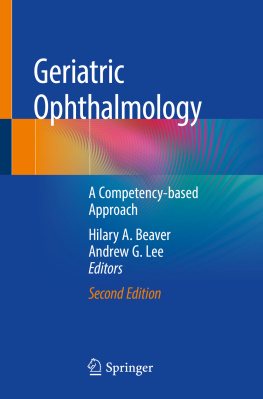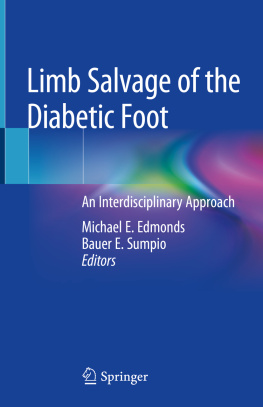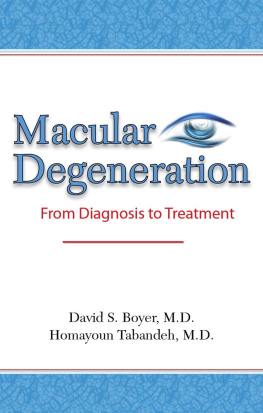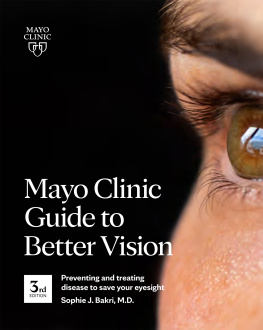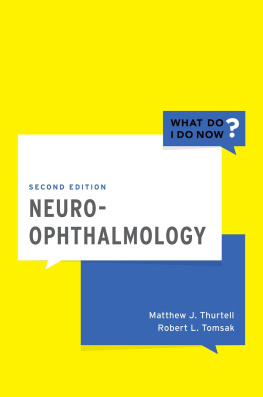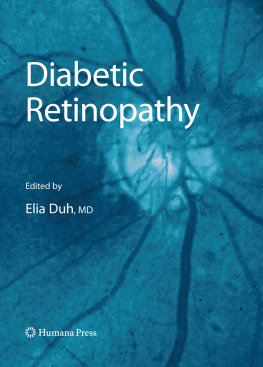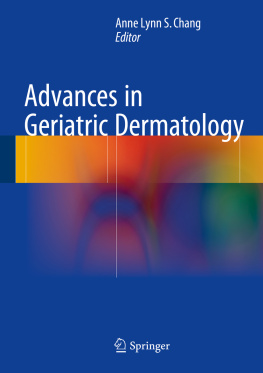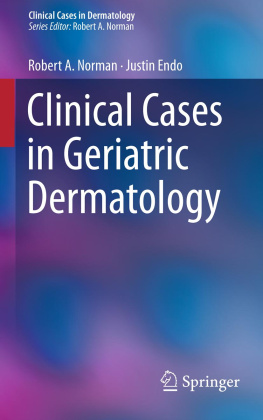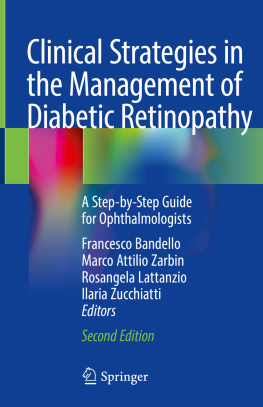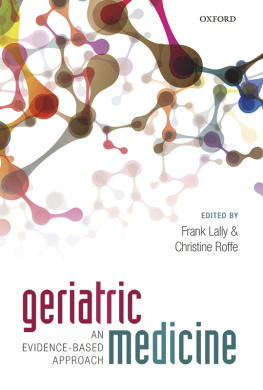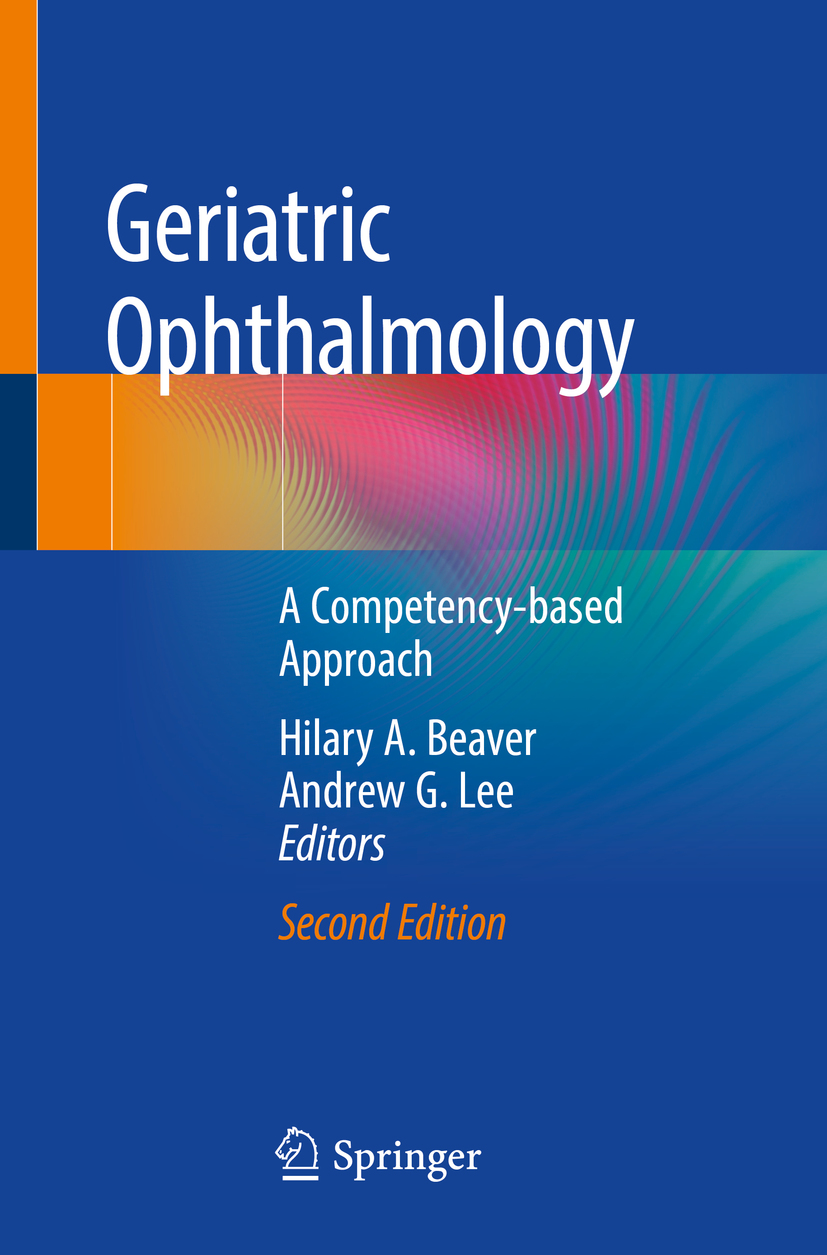Editors
Hilary A. Beaver and Andrew G. Lee
Geriatric Ophthalmology A Competency-based Approach 2nd ed. 2019
Editors
Hilary A. Beaver
Blanton Eye Institute, Houston Methodist Hospital, Houston, TX, USA
Weill Cornell Medicine, New York City, NY, USA
Andrew G. Lee
Blanton Eye Institute, Houston Methodist Hospital, Houston, TX, USA
Weill Cornell Medicine, New York City, NY, USA
UTMB, Galveston, TX, USA
UT MD Anderson Cancer Center, Houston, TX, USA
Texas A&M College of Medicine, College Station, TX, USA
Baylor College of Medicine, Houston, TX, USA
University of Iowa Hospitals and Clinics, Iowa City, IA, USA
University of Buffalo, Buffalo, NY, USA
ISBN 978-3-030-04017-8 e-ISBN 978-3-030-04019-2
https://doi.org/10.1007/978-3-030-04019-2
Library of Congress Control Number: 2018965741
Springer Nature Switzerland AG 2019
This work is subject to copyright. All rights are reserved by the Publisher, whether the whole or part of the material is concerned, specifically the rights of translation, reprinting, reuse of illustrations, recitation, broadcasting, reproduction on microfilms or in any other physical way, and transmission or information storage and retrieval, electronic adaptation, computer software, or by similar or dissimilar methodology now known or hereafter developed.
The use of general descriptive names, registered names, trademarks, service marks, etc. in this publication does not imply, even in the absence of a specific statement, that such names are exempt from the relevant protective laws and regulations and therefore free for general use.
The publisher, the authors, and the editors are safe to assume that the advice and information in this book are believed to be true and accurate at the date of publication. Neither the publisher nor the authors or the editors give a warranty, express or implied, with respect to the material contained herein or for any errors or omissions that may have been made. The publisher remains neutral with regard to jurisdictional claims in published maps and institutional affiliations.
This Springer imprint is published by the registered company Springer Nature Switzerland AG
The registered company address is: Gewerbestrasse 11, 6330 Cham, Switzerland
Foreword
The Second Edition of Geriatric Ophthalmology: A Competency-Based Approach is a terrific and timely book especially for trainees in ophthalmology and related eye professions. And it will serve as a handy reference for those who are fully trained yet would like to update their skills in providing high-quality care to seniors. The Second Edition provides new information and up-to-date references to the continuously emerging science related to caring for the older eye patient. This pithy well-written book has been created by leaders in the emerging field of geriatric ophthalmology. It provides insightful and practical guidance for the common age-related eye conditions and the common comorbidities such as falls, dementia, and depression that profoundly impact the evaluation, treatment, and outcome of older eye patients. Indeed, the excellent eye professional will understand the unique issues their older patients manifest. Older patients dominate health care and more so in ophthalmology than most specialties. Yet American medicine has been slow to integrate geriatric concepts and principles into specialty medicine. For this reason, practical reference books are vital.
What is so different about the older patient? Many issues, but perhaps summarized by three characteristics: (1) the presence of a unique variety of comorbidities in each patient; (2) profound but variable loss of physiological function, especially in those over 80 or so; and (3) heterogeneity created by these variabilities. Together these phenomena result in a marked increased vulnerability in the older patient. This vulnerability makes the senior more prone to missed diagnoses and complications from surgical and medical interventions. Thus the excellent eye professional must carefully consider all comorbidities, some of which may not be obvious or listed on a problem list (such as early dementia or depression). These considerations are imperative in discussing the benefits and burdens of any evaluation or treatment in an older patient. The Institute of Medicine points out this need for all clinicians who deal with adults to become knowledgeable in geriatric principles appropriate to their practice [1].
This book is a reflection, in part, of a two-decade effort of the American Geriatrics Society with ongoing support of the John A. Hartford Foundation, and in the past the Atlantic Philanthropies, to introduce geriatrics into specialty medicine. As the late, visionary geriatrics leader, David H. Solomon, MD, in his prescient Foreword to the First Edition stated: The goal is to help all ophthalmologists to improve the quality of care they provide to the millions of patients suffering from age-associated eye conditions. This effort, called the Geriatrics for Specialists Initiative (GSI), has resulted, among other accomplishments, in innovations in specialty-specific graduate medical education and the creation of new knowledge through sponsoring the career development of specialists committed to the geriatric aspects of their specialty. This research and career development effort is now promulgated by an entry-level award of the NIA/NIH called Grants for Early Medical and Surgical and Specialists Transitioning to Aging Research (GEMSSTAR). The editors of this book, Hilary A. Beaver and Drs. Andrew G. Lee, have long been leaders in the GSI.
The book follows a common template based on recommendations of the Accreditation Council for Graduate Medical Education (ACGME) to focus on competencies. Chapters start with a typical clinical scenario followed by practical information on medical knowledge, clinical care, management, inter-professional communication skills, professionalism, and system-based practice and conclude with a review of the patient vignette now with an informed geriatric approach. Each chapter is inclusive and easily reviewed.
This is likely to be a book that teachers will want in the hands of their trainees, and it serves as a thoughtful and practical template for curricula.
Reference
Institute of Medicine. Retooling for an aging America: building the health care workforce. Washington, DC: The National Academies Press; 2008.
John R. Burton
Preface
We rewrote and extended this text to serve those clinicians, scientists, students, and allied health professionals who focus on the needs of older adults. This book was born from three paradigm shifts in eye care for geriatric patients. First, eye care providers are moving away from the traditional disease-diagnose-treat model of ophthalmic care to a holistic model based on disease prevention, contextual diagnosis, functional assessment, treatment and rehabilitation. Second, there is an increasing recognition that geriatric patients are not just older adults, similar to the recognition that children are not just little adults; there are recognized differences in the anatomy, physiology, pathophysiology, pharmacology, clinical presentations, and responses to disease and treatments in both of these groups. Third is the move from a medical knowledge-based model of care to a competency-based model.

